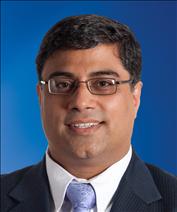 Nothing is as certain as death and taxes- Benjamin Franklin
Nothing is as certain as death and taxes- Benjamin Franklin
Much has changed in our world since the time of Benjamin Franklin (1706-1790) but those words still (sting) true.
Providence controls the former, Parliament the latter.
If ever we need a reminder of governmental power, these words do the trick.
It is a common refrain. Where does our money go?
A veritable treasure is collected by way of taxes and yet national deficits and borrowings keep escalating.
It does not make sense.
We make budgets and live by them and we seem to manage in our personal lives.
While things could get a little out of hand sometimes, nothing can be as catastrophic as the national debt.
So, where do things go wrong? Some would say, wasteful extravagance, while others would stress on boosting self-interest. In my view, all these are overly simplistic epithets.
I do not profess to be a pundit and wax eloquent about all that ails our political structure. It would be better instead to take a long, hard look at how things are done and arrive at some informed conclusions.
Ostentatious consumption
So why are we in the red?
That is easy to explain – because we spend more than we earn and have been doing so for decades.
The financial upheavals of the past few years and the ensuing recession have only highlighted the writing that has always been on the wall.
How do we get out of this mess?
The answer is simple – through self-discipline, sacrifices and time.
This may not sound as a radical set of solutions but this is what it will take.
We have become a society that seeks instant gratification but patience and temperance is what is required to get us out of this vicious cycle.
What is the Government doing to make things right?
The Government has announced budget cuts and is mulling over extending mixed ownership to more industries.
Air New Zealand has been running successfully on this model for a while now and other industries could follow suit.
Another area that the Government is actively seeking to implement reforms is to merge some government departments to cut costs and avoid duplication of not only work but also infrastructure.
The idea is to morph into a leaner and better version of the government machinery in which things get more efficient and effective.
Successful merger
It is easier said than done.
Amalgamating departments and cutting jobs do not make a successful merger.
The dynamics of people, processes and technology that exists in these departments has to be considered carefully. They need to be harmonised in order to achieve the desired transformation.
How can we mould people who may have very different approaches to their work and enable them to perform synergistically?
Which of the existing processes should be retained in the newly formed entity?
Should one think outside the box and introduce business process improvements that would imbue greater efficiency and effectiveness into the new form?
We have a plethora of technological choices but the dilemma is to take the right steps, keeping in mind the fact that people resist change, since they would be reluctant to leave their comfort zone.
People, Processes and Technology: The triumvirate that must be assiduously managed for a transformation to be hailed a success.
Bureaucrats and consultants working in the public sector, adept and able, are a product of the very establishment that is undergoing regeneration.
Accountability needed
I believe that it would be better to bring in professionals who are in tune with the machinations of the private sector and introduce the concept of accountability to handle the revamp and provide return on investment to a wider group of stakeholders.
The rationale behind this is simple.
A fresh pair of eyes is likely to comprehend the situation in a more pragmatic light. Advisors with experience in complex transformations of organisations in the private sector may be able to appreciate better the strengths while remaining mindful of the vulnerabilities of the departments, as they spearhead them into a more evolved version of their former self.
New consultants working in tandem with a cache of advisors usually called upon by the Government will inject an influx of ideas and encourage taking more intrepid steps in the interest of the transformation as compared to the hackneyed solutions that tend to emerge when the vision gets jaded.
New consultants are likely to have the singular goal of materialising the merger and would strive harder, sans sentimentality or tunnel vision.
These consultants handle such scenarios on a regular basis, as they possess the expertise. From their vantage position, they get to witness all things that can and do go awry when a department undergoes change.
They can thus tap into their experiences and respond more effectively in a time of transience.
The Government should consolidate and its departments to register an upswing in efficiency and effectiveness. This is vital for the country.
As Oscar Wilde said, “We may all be in the dump but some of us are looking at the stars. Now, let us reach for them.
Chandan Ohri, Partner, IT Advisory KPMG Risk Advisory Services, Auckland.
KPMG New Zealand is a Sponsor of the Indian Newslink Indian Business Awards 2011 with a unique package. The Firm would host 12 Business Workshop Sessions for winners and a finalist in six categories.






